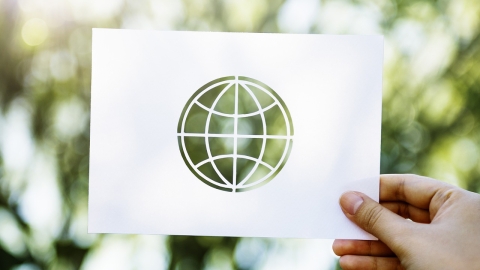New White Paper Dives Deep Into Sustainability in Meetings and Events

The United Nations defines sustainability as meeting the needs of the present without compromising the ability of future generations to meet their own needs. However, there has been some murkiness as to what exactly that means with regard to events and what the definition of sustainability is for the events industry.
U.K.-based meetings and events company BCD Meetings & Events (BCD M&E) has put together a "Green White Paper" that attempts to help put an industry wrapper around the concept. Fueled by survey data, the paper discusses the differences between “green meetings,” corporate social responsibility (CSR) initiatives and sustainability systems.
BCD starts with a disclaimer, stating that there is currently no clear set of guidelines for sustainability. The organization’s revised goal for this whitepaper is to get people thinking and talking about how the meetings and events industry can become more engaged with sustainable efforts, and provide some simple tools that can make a difference.
Sustainability issues covered include:
- Climate change
- Water conservation and quality
- Solid waste
- Human rights
- Health and safety
The paper offers suggestions for best practices in a variety of areas within events, including experience design, audio-visual and production, catering, venue and accommodations and travel. It also includes a list of key questions to ask from the very beginning of the event planning process to ensure that sustainability is incorporated in a manageable way.
Statistics shared in the paper may open some show organizers’ eyes. For example, when planning a meal for 500 attendees, serving chicken rather than beef can save 628,000 liters (165,900 gallons) of water.
BCD believes that meetings and event professionals have the power to facilitate change and that through knowledge sharing, promotion of innovation and increased personal interactions and engagement, we can all make a difference.
Drawing upon best practice examples, the organization has created a list of steps to take to get started on the path to sustainable events and curated a short list of “quick-start” ideas. It also posits future developments and needed areas of innovation and focus.
The focus on sustainable events is only continuing to grow. According to a 2018 study referenced in the paper, 61 percent of UK event professionals have seen an increase in the importance of CSR over the past 12 months. And WRAP has launched the UK Plastics Pact with the ambition of making 100 percent of plastic packaging in the UK reusable, recyclable or compostable by 2025.
BCD suggests that event planners start with the basics, asking questions such as:
- What sustainability issues do you care about?
- How can and do you act on your sustainability values as an event professional?
- Can you measure the impact that your actions have?
Starting with strategic goals can help event organizers avoid being overwhelmed by all the areas where change can be implemented. From there, BCD suggests additional questions that can be posited to help build a business case for sustainability.
The full “The Green White Paper: Sustainability in Meetings and Events” report is available for complimentary download HERE.
Don’t miss any event news! Sign up for any (or all) of our e-newsletters HERE & engage with us on Twitter, Facebook, LinkedIn & Instagram!


Add new comment